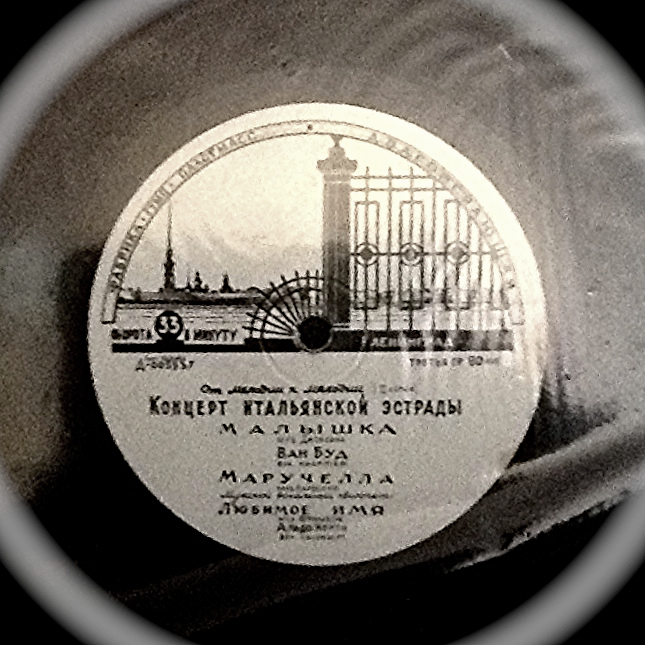When I first met Rudy Fuchs, the last bootlegger standing, he was understandably a little suspicious. We eventually bonded when he surprised me by playing an 1930s gramophone record by the Ray Noble orchestra and the crooner Al Bowlly. Al Bowlly is one of my favourite artists.
The interesting thing about the record was that it had a Russian label (see the image). I couldn't quite work out whether it was a record officially pressed or imported into Russia (or pirated) but Rudy had used it as the master copy from which to make various Bowlly Bones records in the 1950s.
The St Petersburg bootleggers generally got their Western records from Russian or foreign sailors in the port. Other travellers and diplomats would have brought records back too but probably for themselves rather than to sell.
Another source during the years 1931 - 1936, were the Torgsin stores for foreigners which were open to Soviet citizens too, provided they had access to hard currency, gold, or jewels. The lower image shows an advertisement for the branch in St Petersburg.
There it was possible to purchase goods such as food, clothing and even gramophone records which were unobtainable elsewhere. There were, of course, security guards at the door who would not let people in if they looked as if they hadn't got the hard currency. Locals would hang out near the shop to try to make trade with the foreigners coming out or make an order before they went in.
The Beryozka stores that opened from 1964 were similar but even less accessible to Soviet citizens - unless they were of the privileged inner party.
You can hear the Al Bowlly record (with Rudy's voice over) beneath.


